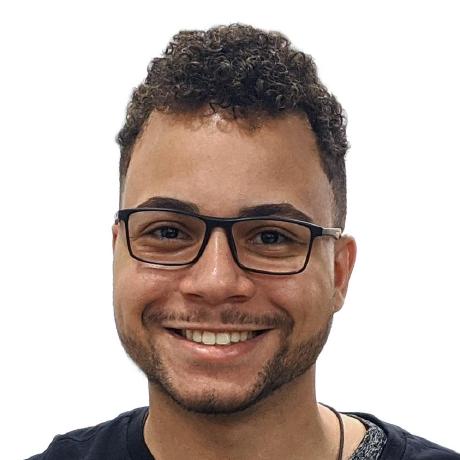The Small Steps Behind My Language Learning Experience
 Gustavo Becelli
Gustavo Becelli
My Motivation
I’m someone who really enjoys learning new things, and one passion that has always motivated me is language learning. Growing up in a country where only one language is spoken and far from any borders, made my mother tongue be the only language I knew. During my teenage years, I was deeply into video games like With Your Destiny (where I had my first encounter with software engineering by writing a blog about the game), Perfect World, Minecraft, League of Legends, and Grand Theft Auto. These games exposed me to English, as I spent most of my afternoons playing them.
However, because many of these games were translated into my native language, I didn’t put much effort into really learning English. I knew a few words and could understand basic sentences, but I couldn’t pronounce, listen to, or write in English. Back then, I saw English as an "important" language mainly because the job market demanded it. Honestly, I had a rather unrealistic view of its importance since my country is somewhat isolated both linguistically and politically.
Dipping My Toes
In high school (2017–2019), I had a friend who was fluent in English thanks to a pretty good language school focused on speaking and conversation. He was persistent in encouraging me to learn English, sharing his materials and even making me read the classic "Rainbow Passage." I was terrible at it,, but I’m thankful for his push because it sparked my interest. Unfortunately, I couldn’t and neither wanted to afford such expensive language schools. At the time, I dreamed big: going to college, skipping straight to a Ph.D., moving to Canada, getting rich, and having a beautiful wife (spoiler: the wife part worked out—love you, babe).
That was when I started dabbling in English. I used Duolingo, explored Reddit (including a regrettable phase involving “red pill” content—teenagers can be terrible), and absorbed bits of English through games like League of Legends and other small exposures. My progress was minimal: listening, speaking, and writing were still far beyond me. Also, I never enjoyed using platforms like Duolingo or Anki, nor did I want to pay for speaking services with strangers.
By my final year of high school in 2019, I could read simple texts and began listening to basic content. When it came to the foreign language section of our national exam, I chose English over Spanish (having no experience with Spanish at all) and performed well—not that the exam was particularly challenging.
The Turning Point
In college (2020), things began changing rapidly. As a Computer Science student, I challenged myself to become fluent in English. I drew inspiration from Fábio Akita, a figure I admire in the tech world, who emphasizes that English is essential in tech, especially if you want to work with cutting-edge technologies. In tech, everything is initially produced in English, and translations often lag behind by months—if they happen at all.
From day one of university, I committed to immersing myself in the English language. I unsubscribed from my native language YouTube channels, podcasts, and news feeds, replacing them with English content. The experience was incredible but challenging, especially in entertainment. Finding good English-language channels to match the quality of what I previously enjoyed was tough. Many of the English channels and Instagram pages I encountered felt superficial or uninteresting to me.
I only kept one podcast from my native language, a nerdy one I had been listening to for years, and at the time, YouTube podcasts weren’t even popular in my country. In this journey, I discovered creators like Veritasium, Linus Tech Tips, and Luke Smith, who were engaging, educational and sometimes... controversial. Podcasts were harder to find, but within a year or two, I stumbled upon gems like the Stack Overflow Podcast and Soft Skills Engineering, Lex Fridman, etc.
Immersing with TV Shows and Podcasts
In my first year of university, several things changed. I started using Linux, software developing, converting to Catholicism, and dating my wife (then my girlfriend). Linux and software engineering were especially impactful because they required me to learn English quickly, particularly reading. Watching series with subtitles, something I didn’t enjoy before, became a key learning tool. Shows like Stranger Things and Rick and Morty motivated me to the point where I could match actors’ spoken words with captions.
By late 2020, I no longer needed to pause shows like Friends to keep up with the dialogue. After finishing it (I was addicted), I challenged myself with How I Met Your Mother—this time without captions. It was tough, and rewatching later revealed how many subtle jokes I had missed, but context guided me through. Around this time, I discovered Matt vs Japan and his Refold method, which became the foundation of my learning process.
By 2021, things became much easier. I played Life is Strange in English (almost failing my exams because of it!), could read complex texts, and was writing longer phrases—though full essays were still hard. My listening skills improved dramatically, especially with American. Speaking, on the other hand... well, I’m not entirely sure. I didn’t practice much, especially after adopting the principles of Refold, which focused heavily on input rather than output.
The Reality of Language Learning
Later that year, I reconnected with my high school friend, and the contrast in our English skills was really interesting. I’m not trying to say I was better or diminish his achievements, but I felt proud because my reading and writing—particularly my vocabulary—had noticeably improved beyond his level. At the same time, he was much better at pronunciation and understanding subtle details, areas where I still struggled.
During the previous two years, I had been immersed in big texts like research papers, documentation, and technical articles, which helped build my reading and comprehension skills. However, this focus came at the expense of speaking practice, so I couldn’t pronounce many words correctly. This occasionally caused me to miss nuances in conversations—something my friend excelled at. It was a humbling but rewarding realization of how far I had come and how much more there was to learn.
In November 2021, I started watching my favourite TV show: Doctor Who. Watching without captions was a challenge, especially with British, Irish, and Scottish accents. It broadened my exposure to new accents, including Indian (common in tech) and Australian. By then, consuming English content felt natural. While I still followed a few native-language creators like Fábio Akita, my preferences had largely shifted.
New Language, New Challenges
In mid-2022, confortable with my English skills, I took on a new challenge: learning Spanish. Its similarity to my native language made it both easier and harder. I wasn’t as motivated to make drastic changes as I had with English, but Catholicism provided plenty of Spanish content unavailable or poorly translated into my language.
Impostor Syndrome
Since then, there haven’t been major changes in my English learning journey. It has become second nature to write texts like this. I still feel some hesitation when speaking, so I wouldn’t call myself fully fluent, but I know I can communicate effectively in any context. The only thing is that this year, 2024, brought a significant milestone that also triggered a bit of impostor syndrome for me: the ability to understand songs—especially ones I wasn’t already familiar with. Oh man, this used to be so frustrating! Before, I could barely make sense of the lyrics, and it felt like an impossible skill to master.
Now, I can finally understand songs, though it still requires active listening for the words to fully form into coherent thoughts and ideas in my mind. It’s been a challenging yet rewarding process, and every time I catch the meaning of a song without effort, it feels like a small victory. As for Spanish, I can grasp general ideas but still struggle with accents. I’m exploring Spanish content, but I’m not yet as radical in my methods as I was with English.
That's it!
I'd love to dive deeper into the specific techniques I use to find and consume content in my target language, but this article would get quite lengthy. You can check it out here, and I highly recommend giving it a read!
That’s my journey so far. What about yours? I’d love to hear your language-learning experiences! Share them in the section below—I’m always excited to talk about this topic.
Happy Learning!
Subscribe to my newsletter
Read articles from Gustavo Becelli directly inside your inbox. Subscribe to the newsletter, and don't miss out.
Written by

Gustavo Becelli
Gustavo Becelli
A developer from Brazil who enjoys creating elegant and performant (for the homies, blazingly fast) code.